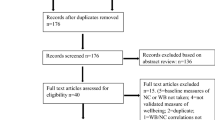Conclusion
I wish to underscore one main paradox I have dealt with above (Number 2), which we must face even if we don't understand it. The goal of identity (self-actualization, autonomy, individuation, Horney's real self, authenticity, etc.) seems to be simultaneously an end-goal in itself, and also a transitional goal, a rite of passage, a step along the path to the transcendence of identity. This is like saying its function is to erase itself. Put the other way about, if our goal is the Eastern one of ego-transcendence and obliteration, of leaving behind self-consciousness and self-observation, of fusion with the world and identification with it (Bucke), of homonomy (Angyal), then it looks as if the best path to this goal for most people is via achieving identity, a strong real self, and via basic-need-gratification rather than via asceticism.
Perhaps it is relevant to this theory that my young subjects tend to reporttwo kinds of physical reaction to peak experiences. One is excitement and high tension (“I feel wild, like jumping up and down, like yelling out loud”). The other is relaxation, peacefulness, quietness, the feeling of stillness. For instance, after a beautiful sex experience, or esthetic experience or creative furor,either is possible—either continued high excitement, inability to sleep, or lack of wish for it, even loss of appetite, constipation, etc.; or complete relaxation, inaction, deep sleep, etc. What this means I don't know. Perhaps the first is not a complete discharge.
Similar content being viewed by others
References
Maslow, A. H.: Cognition of Being in the Peak Experiences, J. Genetic Psychol., 1959, 94, 43–66.
Maslow, A. H.: Motivation and Personality, Harper, 1954.
Deutsch, F. and Murphy, W.: The Clinical Interview (2 vols.), International Universities Press, New York, 1955.
Rogers, C.: The Concept of the Fullyfunctioning Person, (Mimeographed).
Maslow, A. H.: Creativity in Self-Actualizing People, in: H. H. Anderson, (Ed.), Creativity and Its Cultivation, Harper, 1959.
Lee, D.: Autonomous Motivation, J. Humanistic Psychol., in press.
Perls, F., Hefferline, R., and Goodman, P.: Gestalt Therapy, Julian Press, 1951.
Lee, D.: Freedom and Culture, Prentice-Hall, 1959.
Maslow, A. H.: Health as Transcendence of the Environment, Journal of Humanistic Psychology, 1961, (In press).
Maslow, A. H.: Deficiency Motivation and Growth Motivation, in: M. R. Jones (Ed.), Nebraska Symposium on Motivation, 1955, Univ. Neb. Press, 1955.
Maslow, A. H.: Two Kinds of Cognition and Their Integration, General Semantics Bulletin, Nos. 20 & 21, 1957, 17–22.
Levy, D. M.: Personal Communication.
Maslow, A. H.: Peak Experiences as Completions (to be published).
Maslow, A. H.: Toward a Psychology of Being, Van Nostrand, 1962.
Lewis, C. S.: Surprised by Joy, Harcourt, Brace, 1956.
Additional information
A. H. Maslow, Ph.D., is a Professor of Psychology at Brandeis University. He is the author of “Motivation and Personality,” and other books and articles.
Rights and permissions
About this article
Cite this article
Maslow, A.H. Peak experiences as acute identity experiences. Am J Psychoanal 21, 254–262 (1961). https://doi.org/10.1007/BF01873126
Issue Date:
DOI: https://doi.org/10.1007/BF01873126




